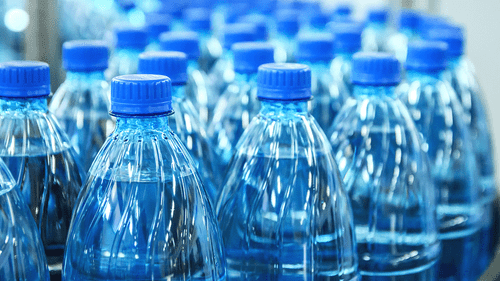Wellhealthorganic.com know why not to reuse plastic water bottles know its reason in Hindi: Recent research suggests that containers commonly utilized for storing food and beverages, exemplified by the transparent water bottles often affixed to hikers’ backpacks, may contain trace amounts of Bisphenol A (BPA), a synthetic chemical that has the potential to interfere with the body’s natural hormone signaling system.
Founded more than 15 years ago in Sussex, UK, One Green Bottle emerged as a response to these concerns and the proliferation of single-use plastic bottles filled with water and fruit juices lining store shelves. The company specializes in a diverse array of reusable bottles meticulously crafted from the highest-grade stainless steel, known for its inert nature and complete safety for prolonged and repeated use.
This award-winning enterprise has gone to great lengths to establish an exceptionally sustainable supply chain, ensuring that its products are devoid of plastic packaging and are manufactured with ethical and responsible practices.
Discover our collection of Award-Winning Water Bottles certified to be entirely free from harmful chemicals here.
Caution Against Reusing Plastic Bottles
The repeated use of plastic bottles, which can develop scratches and wear through regular washing, heightens the risk of chemicals leaching from micro-fractures and crevices over time. A comprehensive review of 130 studies by the Environment California Research & Policy Center revealed associations between BPA and conditions such as breast and uterine cancer, an increased risk of miscarriage, and diminished testosterone levels.
Children’s developing systems can also be adversely affected by BPA, with some baby bottles and sippy cups constructed from plastics containing BPA. While experts generally agree that the potential leaching of BPA into food and drinks through regular handling is likely minimal, concerns persist about the cumulative effects of these minor doses over time.
Also Read : Wellhealthorganic.com simple ways to improve digestive system in Hindi
Risks of Reusing Plastic Water and Soda Bottles
Health advocates strongly discourage the reuse of bottles made from plastic #1 (polyethylene terephthalate, or PET/PETE), which includes the majority of disposable water, soda, and juice bottles. Although safe for single use, studies indicate that such containers may leach DEHP, another potential human carcinogen, when structurally compromised or in less than perfect condition.
Environmental Impact of Plastic Bottle Usage
Globally, a staggering one million plastic bottles are purchased every minute, translating to 20,000 bottles per second. In 2016 alone, an astounding 480 billion bottles were sold. Despite their recyclability, the production and incineration of plastic were estimated to generate over 850 metric tons of greenhouse gases, toxic emissions, and pollutants contributing to global warming in 2019, as reported by the nonprofit Center for International Environmental Law. While PET bottles are recyclable, less than half of those purchased in 2016 were collected for recycling, with only 7% being converted into new bottles. The majority end up in landfills on a daily basis.
Toxic Substances from Incinerating Plastic Bottles
Plastic #3 (polyvinyl chloride/PVC) poses another suboptimal choice for water bottles, whether reusable or not, as it can leach hormone-disrupting chemicals into stored liquids and release synthetic carcinogens into the environment when incinerated. Similarly, plastic #6 (polystyrene/PS) has been shown to leach styrene, a potential human carcinogen, into food and beverages.
Safe, Reusable Alternatives
Wellhealthorganic.com know why not to reuse plastic water bottles know its reason in Hindi, Consumers seeking alternatives to plastic bottles that are both reusable and safer can opt for bottles made from HDPE (plastic #2), low-density polyethylene (LDPE, or plastic #4), or polypropylene (PP, or plastic #5). Additionally, aluminum and stainless steel water bottles, readily available from online retailers and many natural food markets, present more secure choices that can be reused and eventually recycled.
Also Read : Well Health Tips in Hindi WellHealth
Explore our user-recommended selection of safe, reusable water bottles here. These bottles have been specifically endorsed by our customers as superior alternatives to single-use plastic bottles.
FAQs About Wellhealthorganic.com know why not to reuse plastic water bottles know its reason in Hindi
Q 1: Are reusable water bottles a safer alternative to plastic bottles?
A: Yes, reusable water bottles made from materials such as stainless steel, HDPE, LDPE, or polypropylene are considered safer options. They eliminate the risk of harmful chemicals leaching into beverages, unlike some plastics.
Q 2: Why should I avoid reusing plastic #1 bottles for drinks?
A: Plastic #1 (PET/PETE) bottles, commonly used for water, soda, and juice, may leach DEHP, a potential human carcinogen, when structurally compromised. Reusing them increases the risk of exposure to harmful substances.
Q 3: What is the environmental impact of plastic bottle usage?
A: Globally, one million plastic bottles are purchased every minute, contributing to a significant environmental impact. Despite being recyclable, the production and incineration of plastic generate greenhouse gases and pollutants, adding to global warming.
Q 4: Can BPA in plastic bottles affect children’s health?
A: Yes, BPA, found in some plastic bottles, can negatively impact children’s developing systems. Parents should be cautious, as certain baby bottles and sippy cups may contain plastics with BPA, potentially leading to health concerns.
Q 5: Are there safe alternatives to plastic water bottles?
A: Yes, alternatives such as stainless steel and aluminum water bottles, as well as those made from HDPE, LDPE, or polypropylene, are considered safe and reusable. These materials eliminate the risks associated with some types of plastic bottles.

